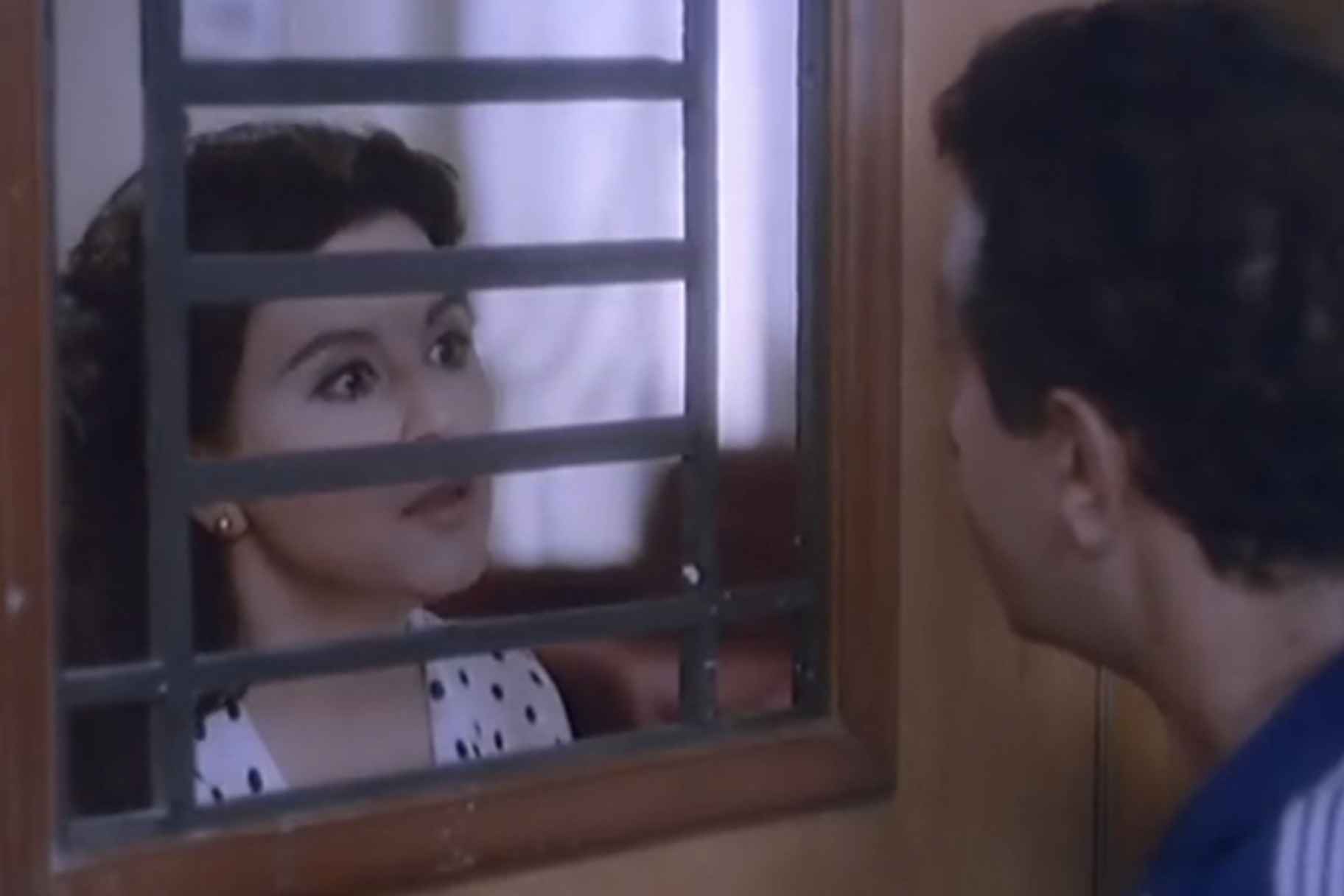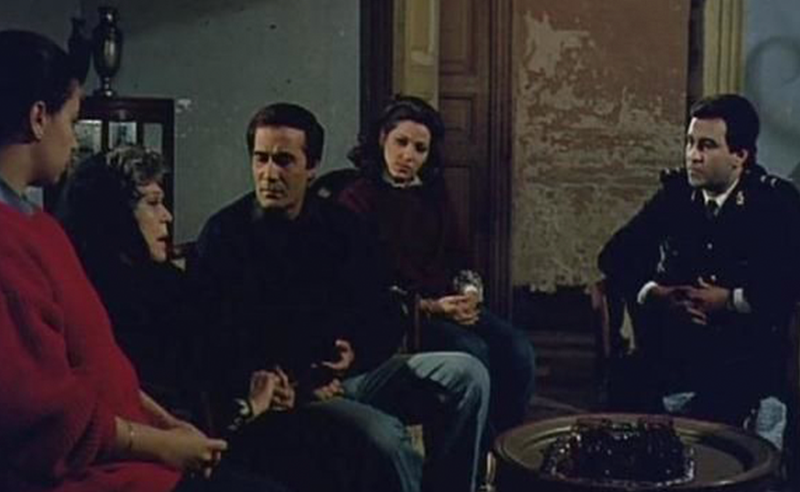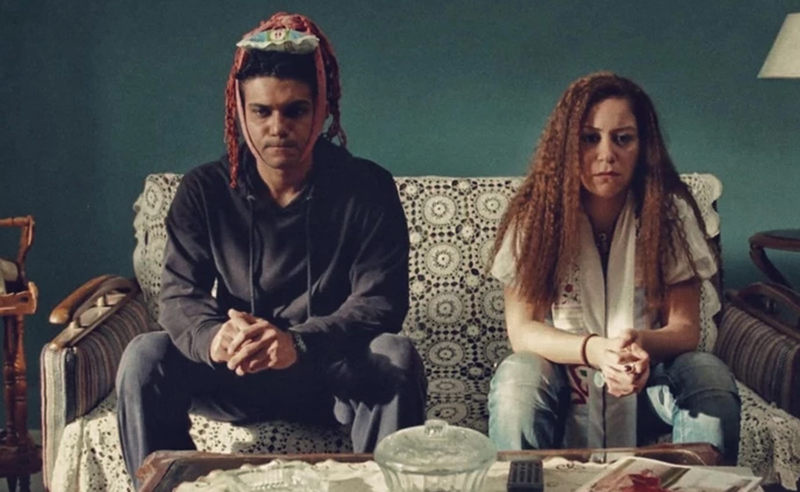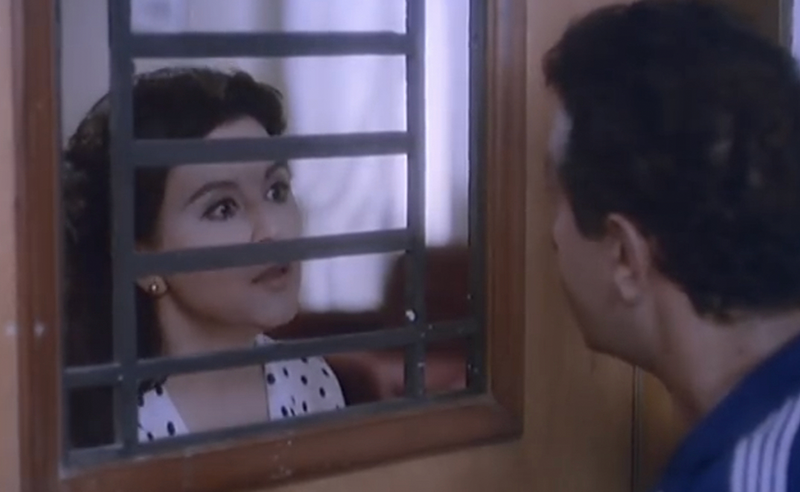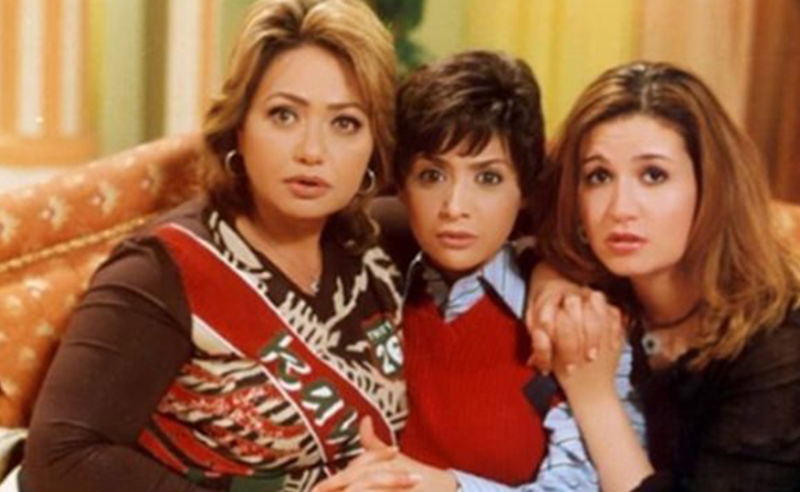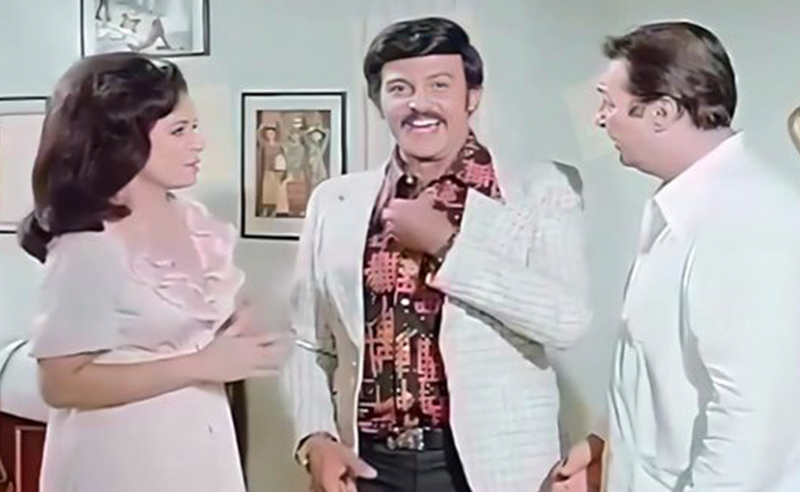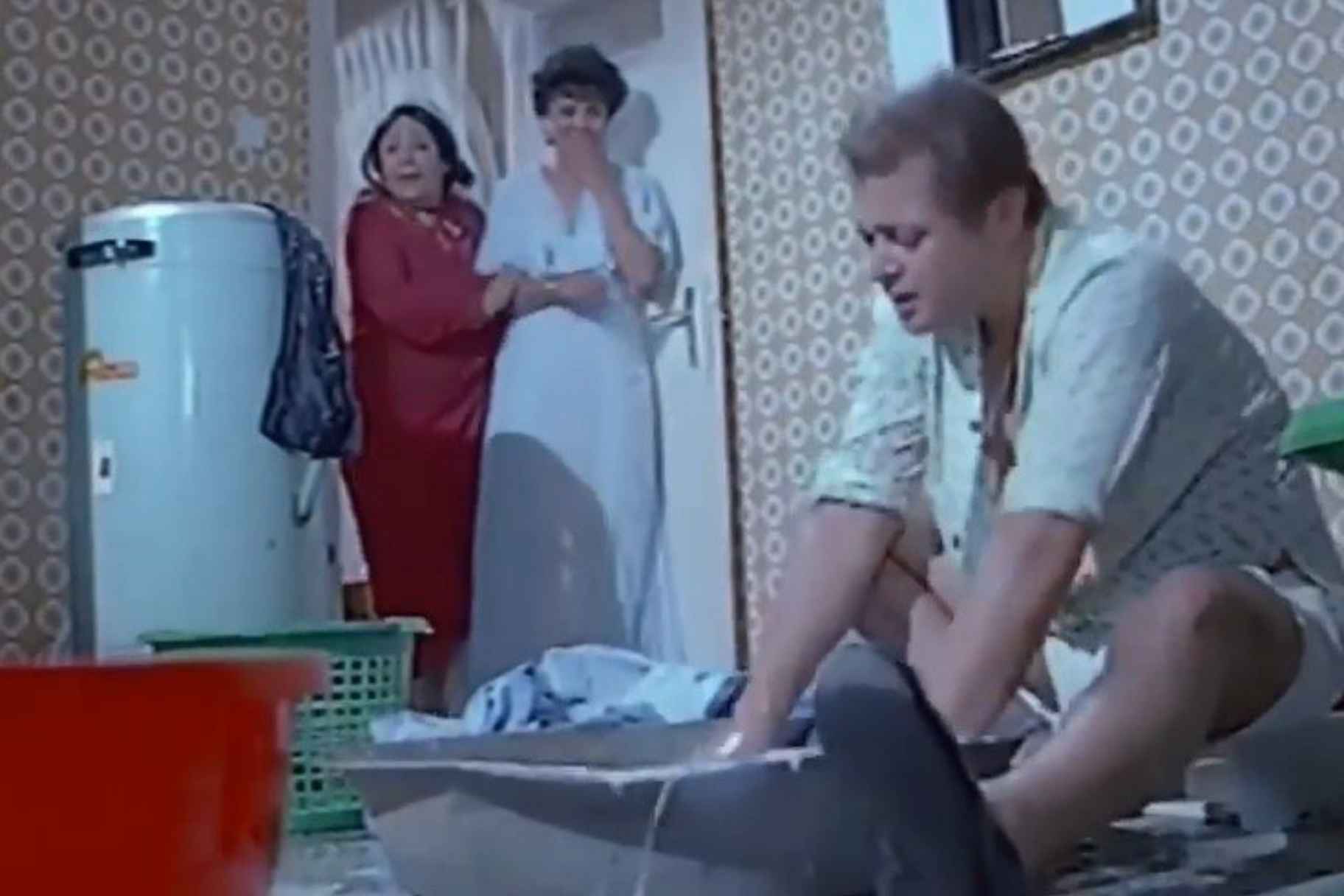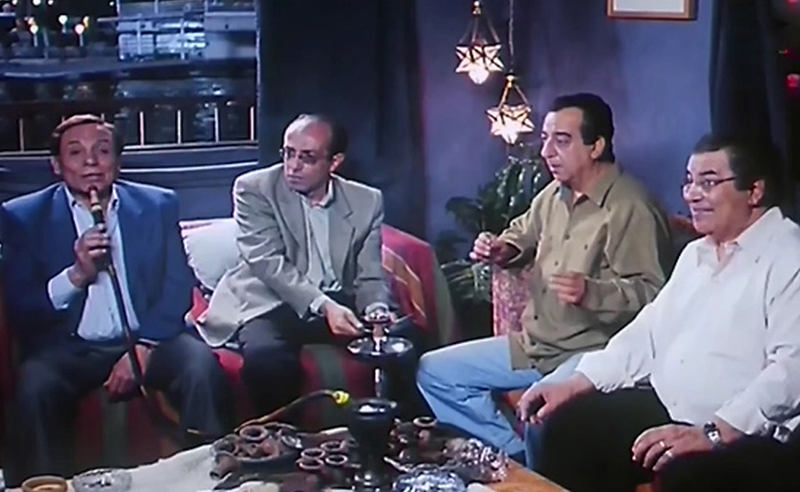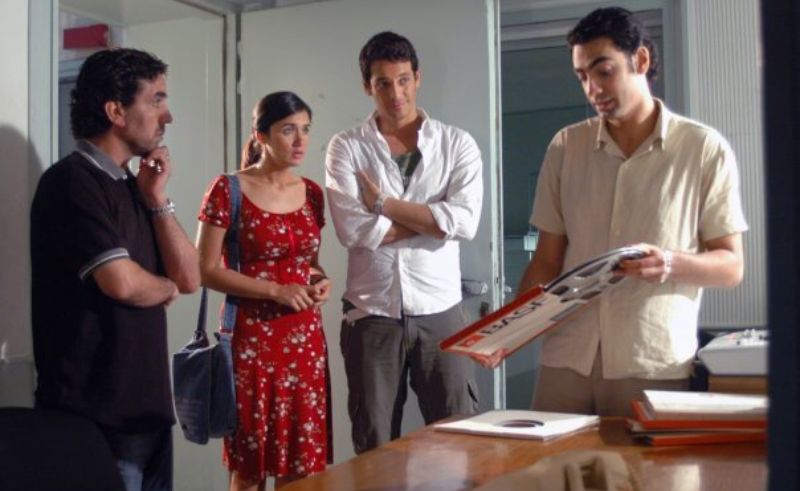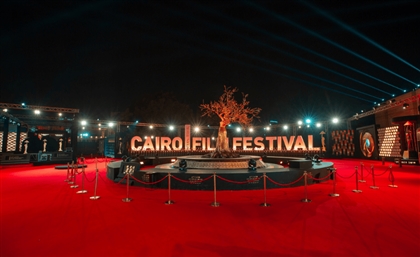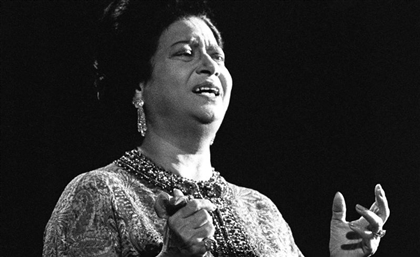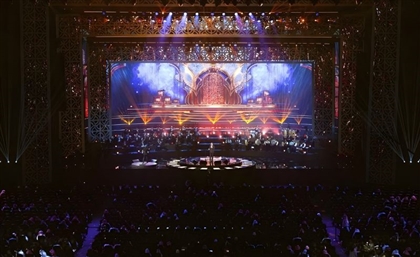We take a peek through the doors of the houses and homes that served as the setting for some of Egypt’s most beloved films…
In film, home has always been more than a mere backdrop. It is an organism, breathing, creaking, whispering. Chamber piece (n.) in the cinematic glossary is not just a confined stage but an intricate music box, where space, characters and emotions harmonise under one lid. Whether nestled amid sprawling farmlands or teetering on the edge of a crumbling cityscape, these homes morph from silent shelters into eloquent storytellers. They house not just people but ambitions, betrayals, and prayers. Egyptian filmmakers have long transformed these spaces into characters with vessels of memory whose walls bear witness to lives unfolding within…
The Guest (El Deef) – 2019
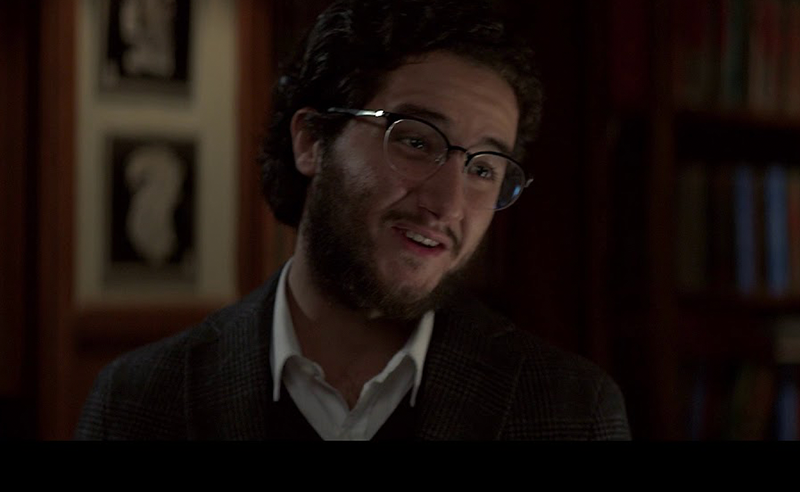
Directed by Hadi El Bagoury
Home as a battleground
In The Guest, the family home becomes a stage for ideological clashes, of personal and philosophical confrontation. Over the course of an intense evening, each room transforms into a battleground where beliefs are tested, relationships are strained, and hidden truths come to light. Yehia (Khaled El Sawy), the father, a prominent liberal scholar who has built his identity around secular intellectualism, clashes with the guest, Osama (Ahmed Malek), whose polite demeanor conceals a rigid extremist stance. Farida (Jamila Awad), Yehia’s daughter, unintentionally brings Yehia’s own enemy, her potential suitor Osama, into the household, driven by her own personal rebellion against her father’s worldview.
The home also hides secrets, most notably the pistol concealed in Yehia’s office; just as the pistol’s presence foreshadows a potential eruption of violence, Farida’s concealed political views, solely shaped by Osama and her father’s inability to build a true dialogue with her, is hidden weapon, turning what should have been a family gathering into a crucible where personal grievances and philosophical conflicts threaten to spiral beyond control.
The Yacoubian Building (Omaret Yacoubian) – 2006
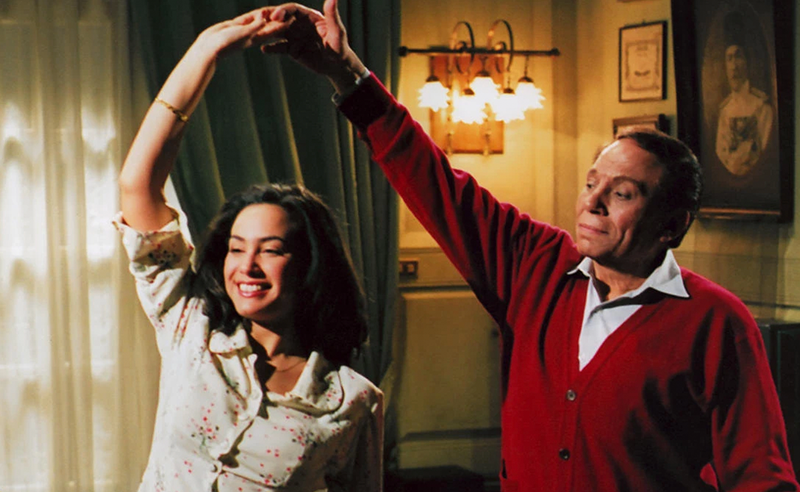
Directed by Marwan Hamed
Home as a microcosm of the metropolis
The titular building in ‘The Yacoubian Building’ is a sprawling microcosm of Cairo and the city's complexity, contradictions and eternal shape shifting across generations. Each apartment tells a different story, one of ambition, love, corruption and secrets. Zaki Bey’s (Adel Imam) decaying yet grand apartment mirrors his own faded grandeur and longing for a bygone era, Taha’s (Mohamed Imam) humble home reflects his dreams and the harsh realities that led to his downfall. The rooftop, with its makeshift dwellings, serves as a poignant metaphor for social disparity, where life is precariously balanced between crumbs of hope and never ending hardship. Hatim, a prominent journalist, dwells in an apartment that reveals the duality of his life. His opulent apartment contrasts with his public persona, and his entanglement in political schemes underscores the invisible tension between power and vulnerability.
Each character’s life, like the building itself, is a layered construct of public persona and private turmoil, adding rich facets to the film’s commentary on class and morality.
Villa 69 – 2013
Directed by Ayten Amin
Home as a reflection of inner turmoil
Early in the film, Hussein (Khaled Abo El Naga) wakes to the sound of mourning from a nearby hospital, and sardonically remarks, “Who dies at 10 in the morning? What will they do for the rest of the day?” In ‘Villa 69’, the protagonist's villa is both a sanctuary and a prison, a place that isolates him from the world. Hussein struggles with both his mortality and relationships. The villa's cold, empty spaces echo his internal desolation, but the atmosphere shifts as his estranged family reenters his life. The once-sterile rooms gradually fill with warmth and connection. He soon leaves the confinement of his cell and wanders the streets of the bustling city.
The Charm (El Ta’weza) – 1987
Directed by Mohamed Shebl
Home as a vessel of fear
In ‘The Charm’ (El Ta’weza), the decaying family home becomes a protagonist, reflecting the characters' psychological and emotional struggles. Mahmoud Abdel Rabbo (Mahmoud Yassin), his wife Rawya (Yousra), and their family endure supernatural occurrences, from tremors to spontaneous fires, as they resist selling the house to Salem Bey (Fouad Khalil).
Socio-economic tensions are alluded to, particularly the monopoly of powerful figures like Salem, who represent external pressures threatening the family’s stability. The decaying house is not just personal history, but represents a class struggle against exploitation and loss of autonomy. By situating fear within the home, the film portrays a broader anxiety about external forces disrupting the sanctity of domestic life. When Rawya finally confronts the malevolent forces, the house becomes a battleground for survival.
Face to Face (Wesh Fi Wesh) - 2023
Directed by Walid El-Halafawy
Home as a catalyst for marital chaos
A typical marital spat between Dalia (Amina Khalil) and Sherif (Mohamed Mamdouh) snowballs into an all-out family affair when meddling relatives and friends unexpectedly join the fray. The apartment, locked from the inside, becomes a confined arena where personal tensions erupt throughout a single night. The setting is harnessed to exaggerate tension and humour, using fast-paced dialogue, shifting perspectives and tightly framed shots. The film cleverly explores the ups and downs of human relationships, reminding us that even in the thick of drama, humour can still break through the walls.
Bibo and Beshir – 2011
Directed by Mariam Abu Ouf
Home as a catalyst for shared personal growth
In ‘Bibo w Beshir’ (2011), directed by Mariam Abu Ouf, Bashir (Asser Yassin) is a young Egyptian man who has spent a significant part of his life in Africa before returning to Egypt to start a new chapter. He soon forms a close friendship with Bibo (Menna Shalaby), a spirited and independent woman. The story takes an unexpected turn when they discover that, without realising it, they have been sharing the same apartment. This surprising twist leads to a series of comedic situations and misunderstandings, as their contrasting lifestyles collide. Their relationship gradually evolves from mere friendship into a charming romantic connection, with the shared living arrangement becoming the driver for personal growth, love and mutual understanding.
Stranger in My House (Ghareeb Fi Bayti) – 1982
Directed by Samir Seif
Home as a shared battleground
The story follows a football player, Shehata Abu Kaf (Nour Elsherif), who becomes a professional at Zamalek SC and moves from Upper Egypt to Cairo. The club buys him an apartment, but he becomes a scam victim when the seller double-sells the property to both Shehata and a woman with her son. The two parties are forced to share the apartment and navigate an increasingly tense living arrangement. The film humorously explores urban migration, deceit and cohabitation, with the shared home serving as a window to broader societal conflicts.
Hob El Banat – 2004
Directed by Khaled El Hagar
Home as a cradle of sisterhood
The shared apartment in ‘Hob El Banat’ becomes a vibrant space that reflects the lives of the three sisters. Nada (Laila Elwi), Ghada (Hanan Turk), and Roqaia (Hana Shiha) were forced to share the same apartment upon their father's death, and each has personal struggles that play out within the apartment's walls and intertwine with the life of Dr. Mounib (Ashraf Abdelbaky), their psychologist neighbour who lives in the opposite apartment. The living room, filled with laughter and occasional quarrels, becomes a symbol of their unbreakable bond. As they navigate love, career, and personal growth, the apartment becomes a living, breathing entity that mirrors this journey.
A’alam Ayal Ayal – 1976
Directed by Atef Salem
Home as a circus, as a haven
The story follows the journey of love and union between Hilmi Abdelkader (Roushdy Abaza), a widowed petroleum engineer with eight kids from his late wife, and Samia (Samira Ahmed), a young widow raising six kids of her own. Initially trying to hide the reality of their large families from each other, they eventually come clean and tie the knot. As expected, chaos ensues, but soon enough, the house becomes a lively space where everyone learns to get along. It turns into a warm and bustling home where dreams take root and family bonds grow stronger.
El Sha'a Min Haq El Zoga – 1985
Directed by Omar Abdel Aziz
Home as a split-decision
Samir (Mahmoud Abdel Aziz) and Karima (Maaly Zayed) marry after a workplace romance, but financial pressures and familial interference soon erode their happiness. When Karima’s domineering mother, Hulagu (Naima El-Soghayar), demands a divorce to claim the apartment under existing laws, the home is divided into contested spaces.
El Sefara Fil Omara – 2005
Directed by Amr Arafa
Home as a fortress of resistance
Sherif (Adel Imam) undergoes a transformation from a carefree womaniser to a man determined to reclaim his home from political intrusion. Initially, his apartment is a sanctuary for his hedonistic lifestyle, but the Israeli embassy’s presence forces Sherif to confront socio-political realities, turning his apartment into a battleground of resistance. As tensions escalate, his personal struggle becomes a broader fight for autonomy.
Fi Sha'et Masr El Gedeeda – 2007
Directed by Mohamed Khan
Home as a gateway to freedom
Laila Mourad’s ‘Ana Alby Daleely’ plays as a leitmotif in ‘Fi Sha'et Masr El Gedeeda’. Originally from El Minya, Nagwa (Ghada Adel) “follows her heart” to Yehia (Khaled Abol Naga) in Heliopolis, where a compelling drama unfolds. Searching for her former music teacher, Tehani, who once inspired her passion for music, Nagwa’s journey becomes one of fate and self-discovery. Spending time in Tehani’s former apartment, now Yehia’s, transforms her, revealing a version of herself beyond societal expectations. In a poignant finale, Nagwa receives a long-awaited message from Tehani, she is now ready to embrace love and liberation.
